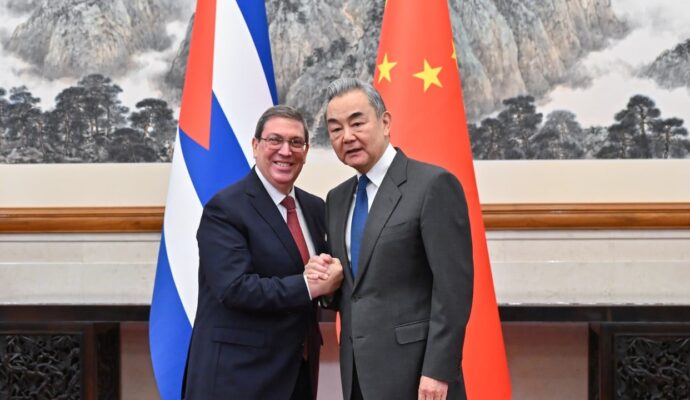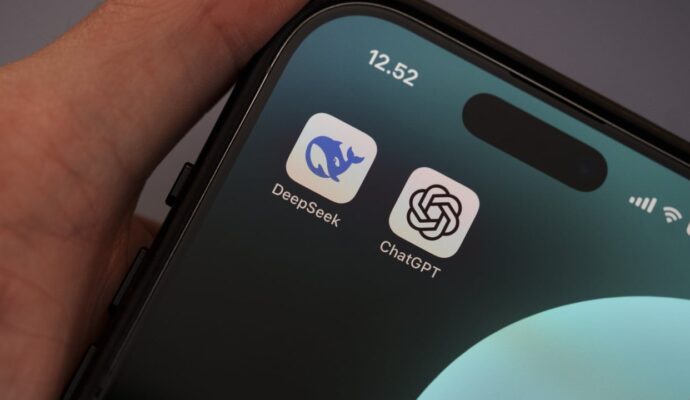The head of the Foreign Office will travel to China next week as ministers come under pressure over the collapse of a high-profile espionage case, the Guardian can disclose.
Oliver Robbins, who as permanent secretary of the Foreign, Commonwealth and Development Office (FCDO) is its most senior civil servant, will visit China on “long-planned” government business.
The trip comes during the same week ministers are expected to face questions over whether they had a hand in the abandonment of charges against two men, including a former parliamentary researcher, accused of spying for Beijing. Christopher Cash and Christopher Berry, who had always maintained their innocence, now have no case to answer.
Conservative MPs will seek to haul ministers to parliament to explain the sequence of events that led to the collapse of the trial of Cash and Berry, which had been due to begin this week.
Downing Street has said there was no ministerial or official involvement in the case being pulled.
But in an extraordinary disclosure Stephen Parkinson, the director of public prosecutions, said prosecutors were forced to drop the case after failing to obtain a witness statement from the government stating that China posed a “threat to the national security of the UK”.
Parkinson told MPs in a letter on Tuesday that “efforts were made over many months” to obtain this piece of evidence and that without it the case “could not succeed”, although legal experts have since cast doubt on whether it would have been necessary.
The developments have raised questions about the government’s diplomatic rapprochement with Beijing ahead of a crunch decision on whether to approve a proposal for a Chinese super-embassy in east London.
Robbins will become the latest senior government figure to travel to Beijing, after recent trips by Peter Kyle, the business secretary, for trade talks in September and Jonathan Powell, the national security adviser, for high-level meetings in July. Keir Starmer is expected to visit China early in the new year.
A UK government spokesperson said: “This visit has been long planned as part of the permanent undersecretary’s regular travel to the FCDO’s overseas network of embassies and high commissions. This follows the visit by the previous permanent undersecretary in April 2023.”
Robbins is reported to have attended a meeting in Whitehall in early September where Powell set out details of how the government’s evidence would not describe China as an “enemy”.
In order to prove the case under the Official Secrets Act, prosecutors would have had to show the defendants were acting for an “enemy”.
Parkinson told MPs that the case law had changed in July, after the trial of six Bulgarians accused of spying for Russia, and implied that the enemy requirement had become more stringent. Some legal experts argue that the bar for prosecution has in fact been lowered.
Starmer has argued that the case against Cash and Berry rested on the Conservative government’s approach towards China, saying that the alleged offences took place in 2022 and early 2023. “You have to prosecute people on the basis of the circumstances at the time of the alleged offence, and so all the focus needs to be on the policy of the Tory government in place then,” the prime minister told reporters this week.
Philip Barton, the last permanent secretary in the Foreign Office, visited Beijing in the spring of 2023 for meetings with senior figures including Liu Jianchao, the head of the Chinese Communist party’s powerful international department.
Liu last visited London in June for meetings with MPs and ministers including the then foreign secretary David Lammy, but was reportedly detained by Chinese authorities shortly after his return. He has been replaced in his role by Liu Haixing.
The best public interest journalism relies on first-hand accounts from people in the know.
If you have something to share on this subject, you can contact us confidentially using the following methods.
Secure Messaging in the Guardian app
The Guardian app has a tool to send tips about stories. Messages are end to end encrypted and concealed within the routine activity that every Guardian mobile app performs. This prevents an observer from knowing that you are communicating with us at all, let alone what is being said.
If you don’t already have the Guardian app, download it (iOS/Android) and go to the menu. Select ‘Secure Messaging’.
SecureDrop, instant messengers, email, telephone and post
If you can safely use the Tor network without being observed or monitored, you can send messages and documents to the Guardian via our SecureDrop platform.
Finally, our guide at theguardian.com/tips lists several ways to contact us securely, and discusses the pros and cons of each.
","image":"https://i.guim.co.uk/img/media/ae475ccca7c94a4565f6b500a485479f08098383/788_0_4000_4000/4000.jpg?width=620&quality=85&auto=format&fit=max&s=45fd162100b331bf1618e364c5c69452","credit":"Illustration: Guardian Design / Rich Cousins"}”>
Quick GuideContact us about this story
Show

The best public interest journalism relies on first-hand accounts from people in the know.
If you have something to share on this subject, you can contact us confidentially using the following methods.
Secure Messaging in the Guardian app
The Guardian app has a tool to send tips about stories. Messages are end to end encrypted and concealed within the routine activity that every Guardian mobile app performs. This prevents an observer from knowing that you are communicating with us at all, let alone what is being said.
If you don’t already have the Guardian app, download it (iOS/Android) and go to the menu. Select ‘Secure Messaging’.
SecureDrop, instant messengers, email, telephone and post
If you can safely use the Tor network without being observed or monitored, you can send messages and documents to the Guardian via our SecureDrop platform.
Finally, our guide at theguardian.com/tips lists several ways to contact us securely, and discusses the pros and cons of each.

